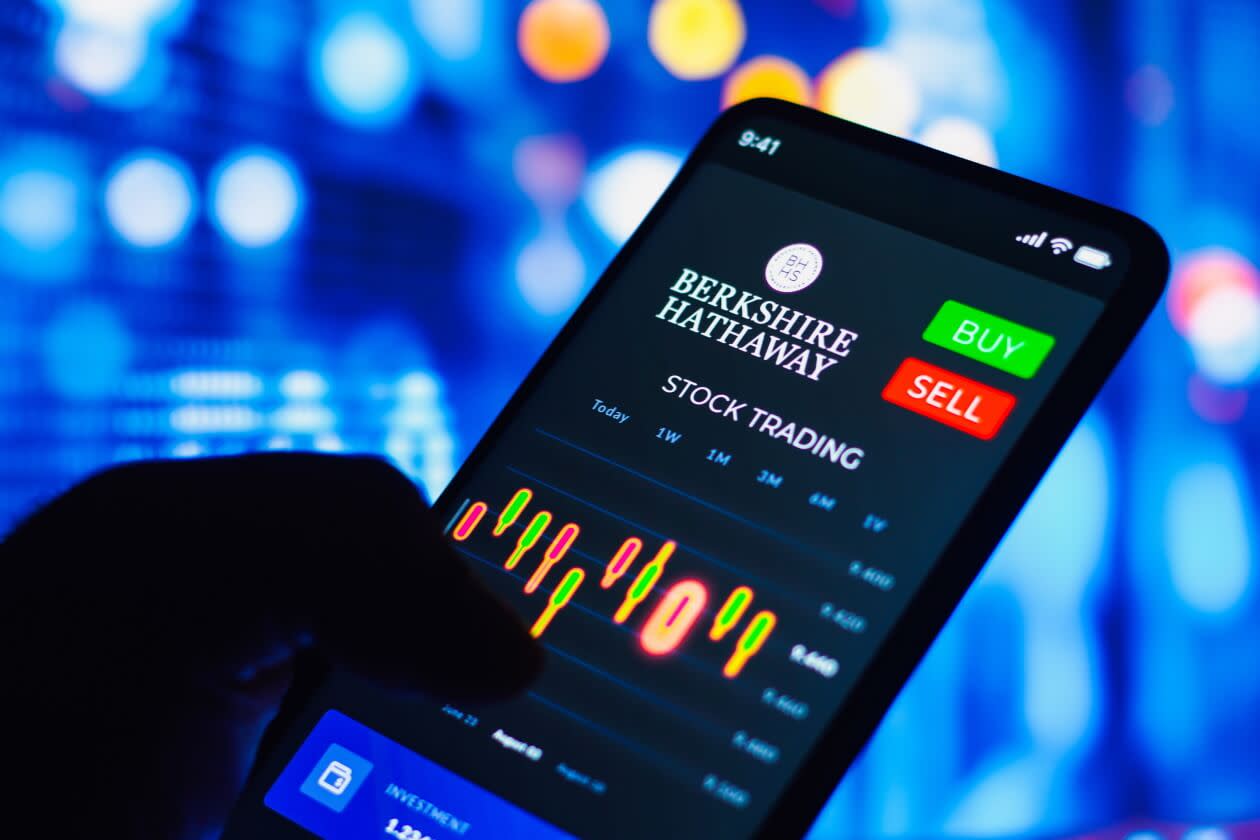When Warren Buffett published his annual letter to investors of his investment firm Berkshire Hathaway in February, the global financial community took notice.
These lessons are an annual tradition and are eagerly awaited to try and glean nuggets of information from Buffett, who some consider is the world’s most successful investor.
The numbers paint the picture. The compounded annual gain in Berkshire Hathaway shares between 1965 and 2023 is 19.8%, this compares with the main US blue-chip index, which has recorded an annual compounded gain, with dividends included, of 10.2% over the same period. Remember, past performance isn’t a guide to the future.
Berkshire Hathaway’s annual performance is nearly double that of the US blue-chip index, so what was its recipe for success?
This article isn’t personal advice. All investments can rise and fall in value, so you could get back less than you invest. If you’re not sure whether an investment is right for you, ask for financial advice.
Perhaps the most important lesson? – invest for the long term
He says he can’t remember a time since 11 March 1942, the day he bought his first ever stock, when he did not have most of his net worth in US shares, ‘and so far, so good’. He says America has been a ‘terrific country for investors.’
The first lesson is to stay invested for the long term and consider stocks as a place where capital can grow.
How does Buffett pick his stocks?
Buffett particularly likes US shares, and investments in the world’s largest economy have paid off.
The overall gain in the main US blue-chip index between 1964 – 2023 is an exceptional 31,223%, according to Berkshire Hathaway calculations.
Buffett says that Berkshire has two goals when it comes to making investment decisions:
Does the company have good economics that are fundamentally enduring?
Is the company run by able and trustworthy managers?
Buffett adds that Berkshire Hathaway doesn’t always get it right and ‘Berkshire has had its share of disappointments’. People are key, they make and break businesses, and for Buffett, these two principals are some of the most important in capitalism.
For Buffett, this means not making rash decisions and if he felt like he missed an opportunity, ‘another always came along’.
To illustrate this point, he mentions two American companies in Berkshire’s portfolio – Coca Cola and American Express.
Berkshire’s holdings of these companies account for 4-5% each in the portfolio. Buffett states that Coca Cola was founded in 1886, while American Express was founded in 1850, and that Berkshire is ‘not big on newcomers’.
But both companies have strong core businesses that have lasted the test of time. He notes that when these companies expanded into unrelated areas over the years ‘both found little success’ in these attempts.
However, ‘each was hugely successful in its base business’, and their products ‘travelled’, which have led Coca Cola and American Express to be ‘timeless essentials of our world’.
The second lesson here is clear – stick to businesses that have a strong core product or service that the world wants and be wary when they expand into unchartered waters.
Also, as Buffett says, ‘patience pays’. One truth when it comes to investing is that not all of your decisions will pay off, however, that’s the beauty of investing according to Buffett – ‘one wonderful business can offset the many mediocre decisions that are inevitable.’
How does Warren Buffett invest?
When it comes to investing themes, Buffett doesn’t jump on bandwagons.
His investment strategy could be considered classic, and he favours companies that are essential for the way we live.
Another position that Berkshire intends to hold indefinitely is Occidental Petroleum, the US shale oil company.
Although Buffett says that he doesn’t know what oil prices will do ‘over the next month, year or decade’, he thinks this stock is doing the ‘right things for both its country and its owners’.
Buffett’s ownership of Occidental is down to his relief that America is now energy independent. ‘Our country would be very – very- nervous today if…it found itself hugely dependent on non -US sources (of oil.)’
The Energy Information Administration notes that US oil production has hit a 14-year high, and has risen even more quickly in the final months of 2023, in December the US produced on average 13.3 million barrels of oil per day.
Berkshire Hathaway is benefitting from this surge in production, and as Buffett says, this means that ‘OPEC no longer has the upper hand.’
The interesting part of Buffett’s letter is that there’s no mention of artificial intelligence (AI). Which might sound strange to some since Nvidia is the best performing stock in the US in the last 12 months and is higher by more than 261%.
Buffett instead talks about the ‘casino-like behaviour’ that markets exhibit more now, compared to when he was young.
He also warns of the risks of ‘feverish’ activity in financial markets, when animal spirits run hot. Buffett warns that ‘occasionally, the scene turns ugly’. His advice for when this turns sour is to ‘Never risk permanent loss of capital’, which is Berkshire’s main investing rule.

Avoid ‘animal spirits’ in markets – patience is key
In contrast to feverishness impulses, the investment strategy at Berkshire is to avoid these animal spirits in markets.
Buffett says that ‘the arena in which we operate has been – and will be – rewarding if you make a couple of good decisions during a lifetime and avoid serious mistakes.’ This simple piece of advice should be heeded by everyone, especially during a market boom.
Patience is a hallmark of Berkshire Hathaway’s investment strategy and it’s had to have plenty of patience when it comes to Japan.
Buffett notes that Berkshire continues to hold a ‘passive and long-term interest’ in five large Japanese companies.
He’s complimentary about Japan and the fact his holdings in Itochu, Marubeni, Mitsubishi, Mitsui and Sumitomo ‘follow shareholder-friendly policies that are much superior to those customarily practiced in the US.’ By this he means that Japanese companies have reduced the number of their outstanding shares (share buybacks) at attractive valuations.
Buffett’s statement comes at an interesting time for American shares. Over a third of large US companies bought back at least 1% of their shares during 2023, and analysts at Goldman Sachs are predicting that US share buybacks could reach $1 trillion in 2025.
For example, Nvidia has pledged to buyback $9.5bn in share buybacks this year, even though its share price rose to a record high in March, and it’s gained more than 70% in 2024. This is what Buffett is criticising – US companies that buy back shares at ‘unattractive’ prices, i.e., when they’re expensive.
This isn’t the only criticism he has of American companies.
He also points out that the management of these five Japanese companies have been ‘far less aggressive about their own compensation than is typical in the US’.
Berkshire Hathaway has had to wait a long time for Japanese stock indices to return to record highs. For example, the main Japanese stock market, the Nikkei 225, reached a record high in March 2024, for the first time since 1989.
However, it’s not about chasing record stock market highs for Buffett and Berkshire. Instead, the Berkshire way is to choose well-run companies, with solid balance sheets and a global and lasting product or service offering, at a reasonable price.
Kathleen Brooks is the Founder of Minerva Analysis, a market analysis company. Hargreaves Lansdown may not share the views of the author.
Rafael Henrique/SOPA Images/LightRocket via Getty Images



